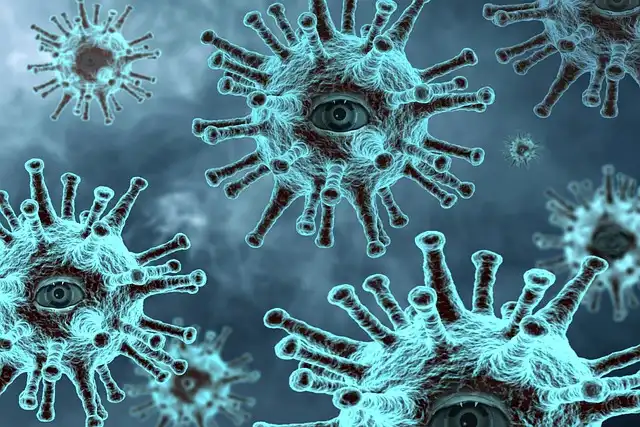Some healthy fish have bacteria in their brains

Lab-reared rainbow trout (Oncorhynchus mykiss) brains may source more than half of bacteria from their blood and guts, suggesting that microbes from other parts of the body traverse the blood-brain barrier to colonize the organ.
We are at a vital time and supporting climate journalism is more vital than ever. Scientific research News and our moms and dad company, the Culture for Scientific research, require your aid to strengthen environmental proficiency and guarantee that our reaction to environment adjustment is educated by science.
Still, the searchings for open up questions concerning whether microorganisms in the brain is a trait unique to fishes, or whether various other vertebrates have minds chock-full of germs, as well.
Salinas and associates probed rainbow trout brain samples for germs, initially removing the blood from the animals’ bodies to avoid contamination. Counts of hereditary product from 4 mind areas revealed that fish brains had comparable degrees of germs as the spleen, yet a thousandth the levels of their intestines. Wild rainbow trout, Atlantic salmon (Salmo salar), Chinook salmon (Oncorhynchus tshawytscha) and Gila trout (O. gilae) likewise have brain microbiomes, although with various communities than lab-grown trout and in differing quantities possibly sourced from various organs.
The new searching for tips that bacteria aren’t necessarily bad news for fish minds. Salinas and coworkers penetrated rainbow trout mind examples for bacteria, first getting rid of the blood from the pets’ bodies to stay clear of contamination. Matters of genetic material from 4 brain regions revealed that fish brains had similar degrees of microorganisms as the spleen, however a thousandth the levels of their digestive tracts. Wild rainbow trout, Atlantic salmon (Salmo salar), Chinook salmon (Oncorhynchus tshawytscha) and Gila trout (O. gilae) also have brain microbiomes, although with various neighborhoods than lab-grown trout and in differing amounts possibly sourced from various body organs.
Erin I. Garcia de Jesus is a team writer at Science News. She holds a Ph.D. in microbiology from the University of Washington and a master’s in science interaction from the College of California, Santa Cruz.
The mind microorganisms may assist fish sense microbial add the setting, says Irene Salinas, an evolutionary immunologist at the College of New Mexico in Albuquerque. That could assist migratory fish navigate rivers.
Wild and lab-grown participants of the salmon family including European rainbow trout, Chinook salmon and Gila trout harbor energetic microbial communities inside their brains, scientists report September 18 in Science Advances. Lab-reared rainbow trout (Oncorhynchus mykiss) minds may resource more than half of germs from their blood and guts, suggesting that microorganisms from other parts of the body go across the blood-brain barrier to conquer the body organ.
Science News was started in 1921 as an independent, not-for-profit source of exact info on the latest news of science, innovation and medication. Today, our objective continues to be the same: to equip people to evaluate the news and the globe around them. It is released by the Society for Scientific research, a nonprofit 501(c)( 3) membership company devoted to public interaction in scientific study and education (EIN 53-0196483).
Brain microorganisms may not always be beneficial for fish. Adult Chinook salmon minds can have accumulation of amyloid-beta, the healthy protein involved in Alzheimer’s, and often tend to have even more bacteria than juveniles do as the adults come close to fatality. Similar to just how the digestive tract microbes head out of whack, it’s possible that often “microbiota in the mind might end up being dysregulated” and create problems for the pets, Salinas claims.
Animal brains are assumed to be complimentary of bacteria, with any type of invasion generally linked to condition (SN: 3/1/23). The new searching for tips that microorganisms aren’t necessarily bad information for fish minds.
Still, the findings open up questions concerning whether bacteria in the mind is an attribute special to fishes, or whether other vertebrates have minds chock-full of bacteria, too. And when it concerns fish, “there’s a lot of variety of various fishes in the world,” Salinas states. Probably deep-sea fish or sharks have one-of-a-kind bacteria in their brains that assist them adapt to their atmospheres.
The team drawn out and expanded an overall of 54 isolates from lab-reared fish, revealing that the microbiome is energetic in the brain. Hereditary evaluations additionally revealed signs that bacteria adapt to residing in the mind, consisting of having structures that may assist microorganisms cross the blood-brain barrier. Whether the germs hunch down over the long haul or the populations are frequently replenished from various other body organs is still uncertain.
1 European rainbow trout2 family including European
3 researchers report September
4 Science Advances
« How to spot tiny black holes that might pass through the solar systemThis researcher studies how misinformation seeps into science and politics »
